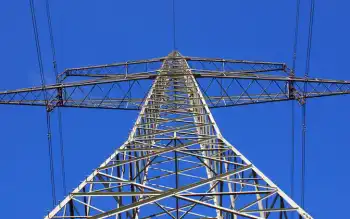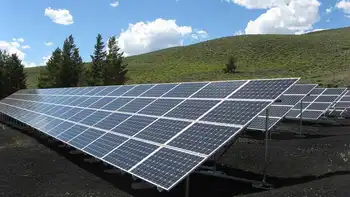Congress urged to enact a Renewable Standard
In a hearing before the House Energy and Commerce CommitteeÂ’s Subcommittee on Energy and Environment, Robo said that investing in renewable energy is the right policy for the nation.
“It will replace finite fossil fuels with the infinite energy of the wind and the sun. It will result in cleaner air. It will conserve precious water resources. It will strengthen our energy security in a volatile world. And finally, it will keep us competitive in the race to build a clean energy economy,” he said.
Robo noted that FPL Group has one of the lowest carbon dioxide emissions rates in the nation.
“In fact, if every utility were as clean as FPL Group, CO2 emissions from the power sector would be reduced by nearly 50 percent. Total U.S. carbon emissions would be reduced by 20 percent, which is the equivalent of removing 209 million cars from the road, or roughly equivalent to 80 percent of all of the vehicles in the nation,” he said.
Despite its tremendous growth over the past decade, renewable energyÂ’s potential remains extraordinary, Robo said.
“Each year, enough solar energy strikes a 90-by-90 mile patch of the Mojave Desert to meet the annual electricity needs of the entire country. And enough wind power sweeps across the Dakotas to meet more than half of our electricity needs. We’ve barely begun to tap this nearly unlimited resource,” he said.
In urging Congress to enact an RES, Robo said it would create a clean energy economy. “Many countries are betting that the world of the future will thirst for low-carbon energy the way it thirsts for oil today. We can’t afford to remain on the sidelines while the renewables industry and the jobs that go along with it are created elsewhere. We’re already falling behind even Europe in this regard – in fact, nearly every one of FPL Group’s largest renewable energy competitors is from outside the United States,” he said.
In order for the renewable energy industry to reach its full potential, developers need certainty and utility decision-makers need a sense of urgency, Robo said.
“We can’t spend billions of dollars to build a clean energy economy without confidence that demand for low-carbon power will remain strong. A federal RES with timelines extending to 2039 will send the clearest possible signal to investors that demand for renewables will continue. And the targets that utilities must meet along the way will provide the urgency needed for prompt action. The best incentive to ensure timely and proactive utility decision-making around renewables is a reasonable yet firm target,” he said.
“Make no mistake: In many markets, renewables such as wind are competitively priced today, despite the fact that they are disadvantaged versus fossil fuels due to the lack of a price on carbon. The cost of wind power has fallen by roughly 25 percent over the past decade, even as the average electric bill in the U.S. has risen by nearly 50 percent. By stimulating demand, an RES will continue to drive down the cost of renewables over time,” Robo said.
Related News

Disrupting Electricity? This Startup Is Digitizing Our Very Analog Electrical System
NEW YORK - Electricity is a paradox. On the one hand, it powers our most modern clean cars and miracles of computing like your phone and laptop. On the other hand, it’s one of the least updated and most ready-for-disruption parts of our homes, offices, and factories.
A startup in Silicon Valley plans to change all that, and has just signed deals with leading global electronics manufacturers to make it happen.
“The end point of the electrification infrastructure of every building out there right now is based on old technology,” Thar Casey, CEO of Amber Solutions, told me recently on…





